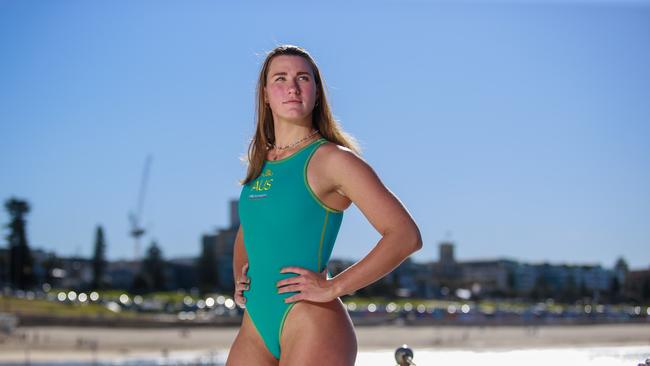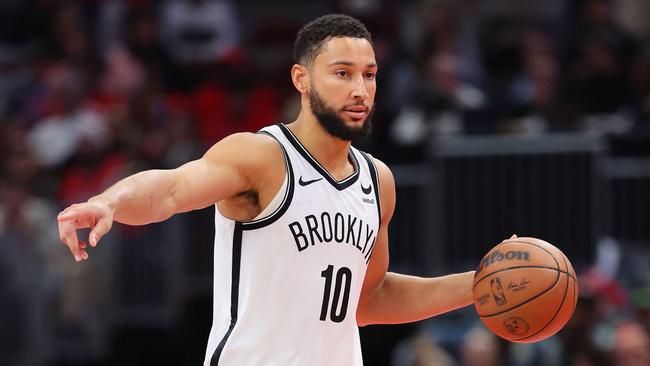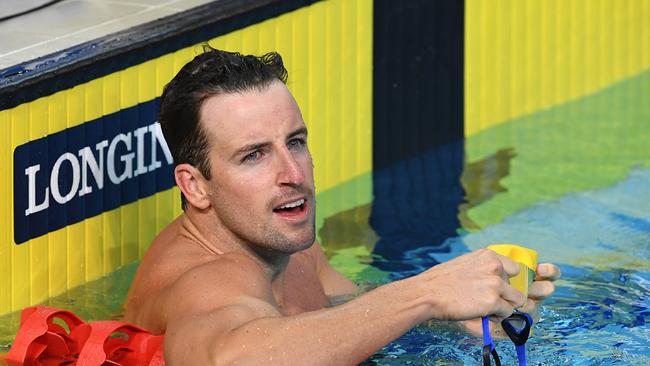Show me the money: Paris Olympians given social media green light
Olympic venues have long been a restricted zone for social media posting, but a rule change from the IOC will allow athletes to show the public what goes on behind the scenes JULIAN LINDEN reports.
For cash-strapped Olympic athletes, the eternal battle to make a buck from their sport is now being waged one click at a time.
In a rare concession to the real stars of the show, the International Olympic Committee (IOC) has agreed to relax its strict rules around what competitors can share on their social media platforms during this year’s Paris Olympics.
For the first time, athletes will be permitted to post personal photographs and homemade videos recorded from areas inside the heavily-protected Olympic bubble that were previously off limits to the public.
There are still plenty of restrictions but what will be allowed is unprecedented behind-the-scenes footage from competition and training venues, as well as the opening and closing ceremonies.
“This is a freeing up and a recognition of the world we live in today around social media,” Australian Olympic Committee (AOC) chief executive Matt Carroll said.
“Any personal experiences being put out on social media directly by the athletes from within competition venues will bring the Games even more to life rather than just watching it on a big screen.”

At the last Olympics in Tokyo, competitors were only allowed to post videos of themselves inside the Athletes’ Village, but the rules for Paris go much further.
There are still rigorous restrictions around what can and can’t be published because the official broadcasters own the rights to all the competitions and medal ceremonies but the changes have been universally welcomed.
Australian water polo star Tilly Kearns, who has almost 400,000 followers on her Tik Tok account, is embracing the change as a fresh opportunity to grow her sport.
Millions of people viewed the videos she posted from Tokyo but she expects the fan engagement levels in Paris to skyrocket.
“I’ve seen the impact already,” Kearns said.
“In my case, it’s given me a platform and an opportunity outside of my sport to earn money, use my voice and kind of build a career outside of that.
“But the most exciting thing to me is I also get to build up the profile of water polo because it brings more eyeballs and people starting to think about your sport even after the Games.”
Years in the making, the rule changes are derived from Rule 40, a by-law of the Olympic Charter dealing with the murky rules around how athletes can market themselves during the Olympics.
Attempting to strike a balance between protecting the commercial rights of the official Olympic sponsors and broadcast partners with the private sponsors of individual athletes, a set of key principles were agreed to.

These include permitting athletes in Paris to send “thank you” messages to personal sponsors, but again with strict rules attached that effectively prevent any advertising or product endorsement.
Despite the restrictions, champion Australian rower Georgie Rowe said any relaxation of the rules that allows athletes to recognise their financial backers was a game changer.
“I know that a lot of sponsors aren’t interested in sponsoring Olympic sport because they don’t get any visibility,” Rowe said.
“They are in that blackout zone where we can’t have their pictures or stickers on our boats or our uniforms but now that we have the opportunity to thank people, it might actually give us more opportunity to get other sponsors and take people along on our journey.”
Australian Olympic broadcaster David Culbert said his advice to athletes was to make the most of the opportunity.
“If you’re filming something that’s producing content that’s going to grow your followers, particularly for the athletes that aren’t in sports that generate lots of income, this is your time,” Culbert said.
“You’ve got to grow your followers because sponsors now and in the future, they want to know what your social media footprint is, almost more importantly than their performance. How many Instagram followers have you got? What’s your audience look like on TikTok? How many people can you influence?”

Leading athlete agents have also welcomed the changes but are seeking more information about how the rules will be applied, knowing that the IOC has sometimes taken a heavy handed approach to protecting its commercial interests. The AOC, athletes and agents are already planning a series of workshops to agree on a social media plan for Paris.
The IOC deserves much credit for implementing the changes but the sceptics will argue this should be the starting point, not the finish.
Mercifully, the days have long gone when competitors were excluded from the biggest show in world sport because they had been paid for playing, but the IOC has also stopped short of giving athletes prize money, or a slice of the enormous profits the event makes.
Swimming legend James Magnussen said the changes were a positive step in the right direction but still more needed to be done to help impoverished Olympic athletes.
“For the Olympics as a whole, being able to give the punter at home a bit of an insight into what the Olympic experience is like is great access because this is a market where we’re competing for eyeballs more than ever before,” he said.
“I think this is much better content and way of getting more coverage than adding in more sports from different realms like e-sports or breakdancing.
“It’s good to see that the IOC is acknowledging some shortcomings and starting to move in the right direction, but there’s still so far to come. You watch a sport like Formula One and they’re plastered in advertisements and ambassador roles.”






To join the conversation, please log in. Don't have an account? Register
Join the conversation, you are commenting as Logout